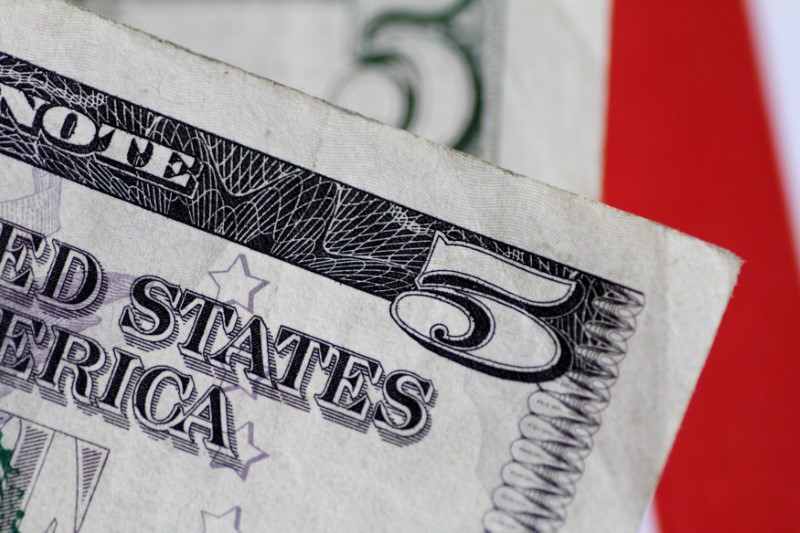Investing.com -- The dollar was marginally lower in early trading in Europe on Wednesday after concerns about the escalating trade war between the U.S. and China caused another day of sharp losses in global stock markets.
The risk-off sentiment has been reinforced by Iran’s announcement that it will stop implementing “some commitments” under the UN-approved 2015 nuclear deal, another challenge to U.S. power that comes only three days after North Korea conducted a series of tests of what may have been ballistic missiles. President Hassan Rouhani warned that the Islamic Republic would resume high-level uranium enrichment if the other signatories to the deal - including Russia, China, France and Germany, didn't act to protect its economy from U.S. sanctions within 60 days.
At 03:00 AM ET (0700 GMT), the dollar index, which measures the greenback against a basket of six major currencies, was at 97.18, down around 0.2% from late Tuesday in Europe.
That was due largely to the yen, which dipped below 110 to the dollar for the first time since late March as traders unwound carry trades funded in the safe-haven Japanese currency.
The yen rose on the back of data showing a sharp drop in China’s trade surplus in March, with a surprising drop in exports announced alongside a solid increase in most commodity imports.
The euro has weathered a sharp downward revision to the EU’s growth forecasts for the year, announced on Tuesday, which had already been prefigured by similar moves from the European Central Bank and national governments.
The single currency also ticked up a little after data showing German industrial production rose 0.5% in March, defying expectations of a 0.5% drop. European Central Bank President Mario Draghi is due to speak at 7:30 AM ET (1130 GMT).
Sterling remained under pressure after the U.K. confirmed it will take part in the European parliament elections on May 22, a move that effectively admits there will be no deal between the Conservative and Labour parties in the meantime.
Elsewhere, the dollar hit a seven-month high against the kiwi after the Reserve Bank of New Zealand cut its key rate to a new all-time low of 1.5%. The move had been expected, even after the Reserve Bank of Australia surprised markets by keeping rates unchanged a day earlier.
